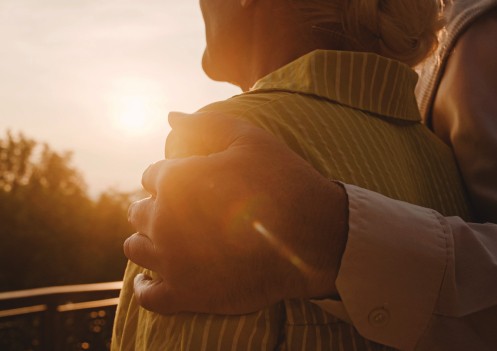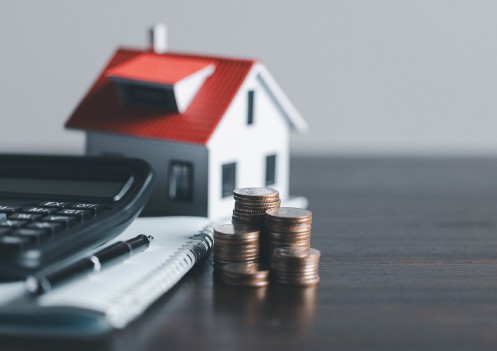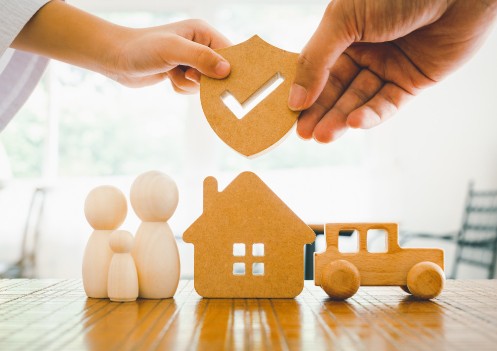My heart is very heavy, and I am guessing yours is as well. The fires that have destroyed so much in Los Angeles, and threatened even more households are terrifying and sad.
If anyone reading this has lost their home or lives in the affected region, please know I send the biggest, strongest virtual hug possible. More than thirty years ago when I was still a practicing certified financial planner, I had clients who lost their homes in the fires that tore through the wooded hills of Oakland, CA. I know first-hand the ache of the loss. I also know from that experience, that with resolve and patience, you—we all—have the ability to move forward. I send you wishes for strength and peace, and the love—from family, from friends, from community—that sustains us all.
Now I want to make sure that everyone is ready for their own potential disaster. Please don’t play some sort of psychological game that you are not a risk. Depending on where you live, you may not be at risk of wildfires fanned by epic-strength winds. But it’s hard to think of a region of our country that isn’t increasingly susceptible to some weather-related natural disaster.
And to be honest, everyone needs to take steps even if the loss is just personal, not geographic. A kitchen fire or faulty wiring can burn down a home at any time. Whether you own or rent, I want you to know that if and when any disaster strikes you have the documentation ready to deal with insurance, the funds to cover your expenses while you wait for insurance claims to be processed, and the peace of mind that comes from knowing your most essential documents and records are backed up online, or with a trusted relative or friend.
Over the next few weeks, I am going to focus on how to be ready for a disaster. Here’s your first assignment, broken into five steps.
1. Hope for the best, plan for the worst.
No matter where you live, no matter how young or old you are, or your net worth, the only way to feel truly secure is to know that you have done everything possible to be ready for a disaster that ruins or damages your home. Today. Not tomorrow, or not next week, or next month. The best time to plan was yesterday.
2. Have an emergency fund that can cover one year of living expenses.
The L.A. fires are just the most recent example of how valuable an emergency savings account is. Even if you have robust insurance coverage, and claims are processed quickly and fully—not a given these days—it can take weeks, or longer to receive funds. Emergency savings are your financial lifeline when disaster strikes.
3. Take pictures. Lots and lots of pictures.
Let’s just say that insurers aren’t always eager to settle claims. Stalling is sometimes part of their business plan. That makes it important to have the strongest possible case to get them to deal with you. And that means having evidence of what you owned, and what you lost. Photos and videos will help. Open every closet and drawer and pull out anything of value—silverware, jewelry, etc.—and take a clear photo. Do this in every room, including the basement and garage if you have either. (This applies to renters as well. Renter’s insurance covers your possessions.)
And make a record of all your clothes. It’s so hard to remember everything when you are dealing with the emotions of a major loss. Those photos are just as much for you as they are for evidence to present to your insurer.
Once you’re done with the inside of the house, those of you with outdoor space (a yard, a garden, etc.) should do the same exercise to document the trees, decks, landscaping etc.
4. Create a written inventory of every item you would claim in a loss.
Using your photos/videos you next need a written inventory of all your possessions. Insurers will expect this list when you file a claim. Hopefully, you have saved receipts for many items. If so, attach a photo of these as well.
5. Share your photos and inventory.
I am a big fan of having a fireproof briefcase/box you can take with you if you have to flee your home. In addition to all the evidence for an insurance claim, it should be where you store documents such as birth certificates, marriage certificates, divorce decrees, any title to valuable assets, etc.
But it’s equally important to have copies of those documents available elsewhere. What happens if a natural disaster hits when you aren’t home and thus can’t grab your get-away case/box?
One of the best steps is to upload digital copies of everything to the cloud. This allows you to access your documents literally from anywhere in the world. If you aren’t familiar with the cloud, that’s okay! Surely there is a younger relative you can ask for help. It is second nature to them. If you don’t like the idea of a cloud-based digital record, consider making a copy of everything and sending it to a family member or friend who doesn’t live near you. That is a good way to ensure you have the documentation you need if a major disaster hits your home.
Okay, that’s your first assignment. Next week I will explain how to check that your current insurance coverages will provide the protection you want, and need.
Top Resources for You

The Ultimate Retirement
Guide for 50+
Learn More

MUST HAVE® Documents
Online Program
Learn More







